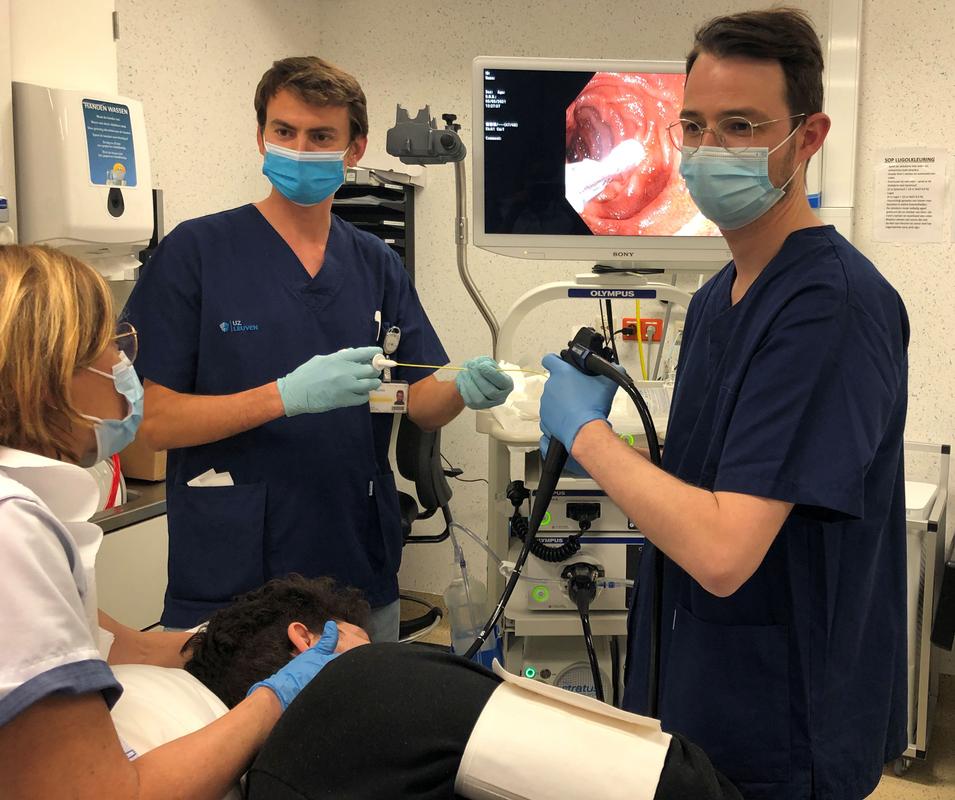People with functional dyspepsia often suffer from stomach problems without a clear cause. Current first line treatment consist of antacids (so-called proton pump inhibitors or PPIs). For most patients, these are effective, but the mechanism behind them was unknown untill recently.
To assess how antacids reduce the symptoms, Leuven researchers set up a prospective trial. For 4 weeks, 28 patients with functional dyspepsie were given a daily antacid, assessing the effect on the stomach problems. Via biopsies they examined the duodenum, the first part of the small intestine that connects to the stomach. They counted the number of inflammation cells present, and studied the degree of intestinal permeability.
Prof. dr. Tim Vanuytsel, gastroenterologist at UZ Leuven: "Treatment with antacids led to a reduction of the stomach problems, a reduction in the number of inflammation cells and a normalisation of the intestinal permeability. Especially the number of inflammation cells was stronlgy associated with the severity of the complaints. It is the first time we were able to demonstrate this link."
The number of inflammation cells in the duodenum was strongly associated to the severity of the stomach problems. It is the first time we were able to demonstrate this link.Prof. dr. Tim Vanuytsel
In addition to the control group, 30 healthy volunteers also participated in the trial. For them the antacids even had a negative effect, possibly they can affect the natural bacterial intestinal flora after long-term use.
New biomarker
The main finding of the trial is that the inflammation in the duodenum seems to play a part in the origins of the symptoms.
Dr. Lucas Wauters, doctoral student involved in the trial: "The presence of inflammation cells can therefore be used as biomarker to help determine which patients can be helped by anti-inflammatory drugs."
Follow-trial
The current antacids do not offer an ideal solution, because they do not work for all patients with functional dyspepsia, and can also have adverse effects in case of long-term use.
The new insights from this trial will allow to team to look more specifically for effective drugs that will not only treat the symptoms, but also the underlying infammation of the duodenum.
More information about functional dyspepsia
About 20 per cent of all people frequently suffer from stomach problems such as upper abdominal pain or bloating after eating. When an endoscopy fails to show any abnormalities, they are diagnosed with 'functional dypepsia'. The cause of the complaints is unknown, but in clinical practice they are often prescribed antacids. For some patients, this treatment seems to work, probably because the disorder is often linked to acid reflux.
In addition, the disease is also associated with the presence of inflammation cells in the duodenum, the first part of the small intestine, just pas the stomach. The current trial was the first to show that antacids can also help reduce the the inflammation as well as the symptoms.

